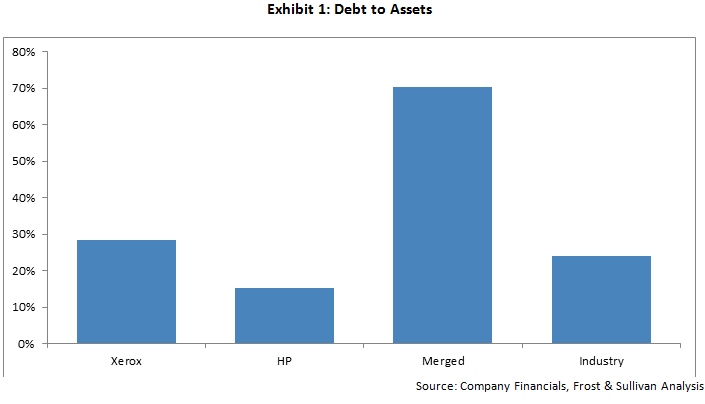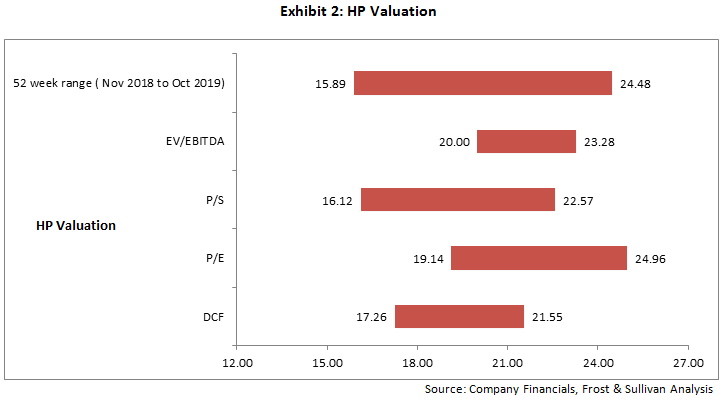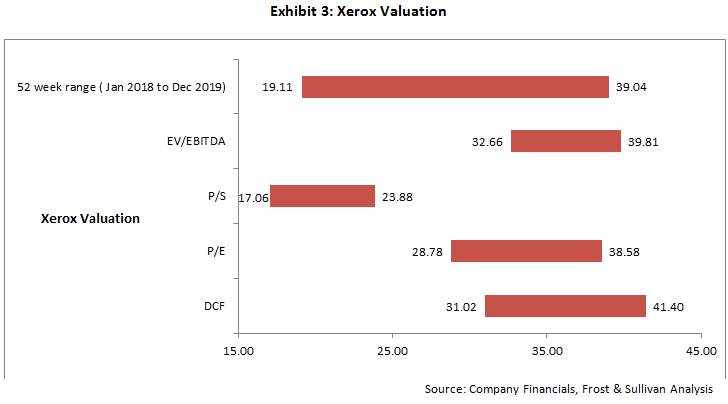The global health crisis and the resulting economic turmoil from COVID-19 have thwarted Xerox’s buyout plan for HP. In a press release, Xerox announced that the current environment is not conducive to pursue its acquisition of HP. This brings an end to the tug of war between the two companies that has been playing out in the public domain since December 2019.
HP has struggled due to challenges in its printing business. The supplies business, which is a major profit center, has been hit hard by reduced printing demand and availability of cheaper alternatives for its printers. Additionally, the profitability of the company has been dwindling despite its recent cost-cutting measures and restructuring efforts. At the start of February, Xerox announced a revised offer of $18.4 per share in cash and 0.149 shares of Xerox for each share of HP. Had the deal gone through, the combined entity would have enjoyed several benefits, including:
- Synergies: Transformation to the digital era and declining demand for paper has dented both companies. One of the major motivations in this regard is to generate economies of scale to compete with a lower cost structure. Xerox expected to realize at least $2 billion in cost synergies within two years of the merger and was estimated to generate combined revenue of $67 billion. This enhanced profitability would have allowed the companies to reinvest in innovation and drive future growth.
- Increased market share: The merger would have resulted in a significant market share in the printing industry for the combined entity. The deal would have helped the company expand in Asia, where HP has a strong presence. Strategically, the new entity could position itself as a top global PC vendor. The combined portfolio would have complimentary offerings covering all needs of small and mid-size businesses, enterprises and in-plant printing segments.
- Gaining access to unique capabilities: Xerox offers Managed IT services and IT Solutions sales as its Office-as-a-Service offerings. The major missing piece in these offerings is the PCs and Desktop-as-a-Service offerings. The gaps in the offerings could have been filled by HP’s business. There was also a huge potential for cross-selling the offerings between each company’s existing clients and partners. 3D printing is one of the key segments expected to drive HP’s future growth. The merger could have helped Xerox extract the potential from this business.
- Value addition for common shareholders: Carl Icahn, who has an ownership stake in both Xerox and HP, had been promoting the benefits of the deal by addressing the shareholders of HP directly. Vanguard, Blackrock, and SsgA Funds Management own 18.34% in HP and 19.76% in Xerox. These shareholders could have played a significant role in the completion of the merger and would have benefitted significantly if the expected synergies in the deal are realized.
Analysis
Xerox is smaller than HP with assets of $16 billion, whereas HP has about $33 billion in assets. For Xerox to pull off this deal, it needed to raise a significant amount of debt funding. The completion of the deal would have increased the debt-to-assets ratio of the combined entity to 71% from Xerox’s current levels of 28%.
HP raised several issues regarding the Xerox offer:
- Xerox had seen its revenues decline by 6.2% in the fiscal year 2019.
- HP also pointed out Xerox’s exit from the Fujifilm joint venture and highlighted concerns about its technology resources, R&D pipeline, and supply capability.
- HP believes that the capital structure resulting from the combination would harm the future value of the combined entity.
In addition to the above issues, HP utilized other defense mechanisms to avoid the offer, including:
- Share repurchase: HP announced its share buyback program in October 2019. To counter Xerox’s offer, HP planned a tender offer for its shares to make Xerox raise its bid and make it a less-attractive target because of the higher leverage the combined company would need to assume.
- Poison Pill: HP implemented a shareholder rights plan to prevent investors from obtaining more than a 20% stake in the company. If any group attempts to do so, the other shareholders would be able to buy additional shares at a discount.
Frost & Sullivan’s analysis of HP indicated a valuation for HP in the range of $20-$22 per share. The chart below indicates the valuation range for four different valuation techniques, namely EV/EBITDA (Enterprise Value / EBITDA multiple), P/S (Price / Sales multiple), P/E (Price / Earnings multiple) and DCF (Discounted Cash Flow).
Frost & Sullivan’s analysis of the Xerox-HP proposed merger indicates that Xerox overestimated the valuation of HP. HP’s tactics to delay the deal would have resulted in Xerox overpaying to complete the deal. Also, incremental costs-savings expected out of the merger may not have continued in the long run. The merger would have put HP’s strong brand value at risk and brought in more uncertainty to HP employees, who were already under pressure due to the restructuring efforts. In a merger involving two large companies, like HP and Xerox, their over-reliance on third-party manufacturers and suppliers makes it difficult for the merger to realize the expected synergies from the deal. For the printing, copying and PC industry, which has been in decline, realization of the merger would have continued the downward trend in margins with smaller competitors cutting prices to compete with larger entities.
The collapse of the deal from COVID-19 outbreak may prove to be a blessing in disguise for both sets of shareholders. This will help the companies to focus primarily on the health and safety of their employees, manage supply-chain disruptions and address the customer’s needs.
Work Done by Frost & Sullivan on COVID-19:
To know more on Frost & Sullivan’s analysis on COVID-19 from across the globe – visit https://www.frost.com/insights/covid19/.
Should you have any queries on the impact of COVID-19 across industries, or need more information or would like to schedule an interview/interaction with our spokespersons, please email Srihari Daivanayagam at Srihari.Daivanayagam@frost.com.








